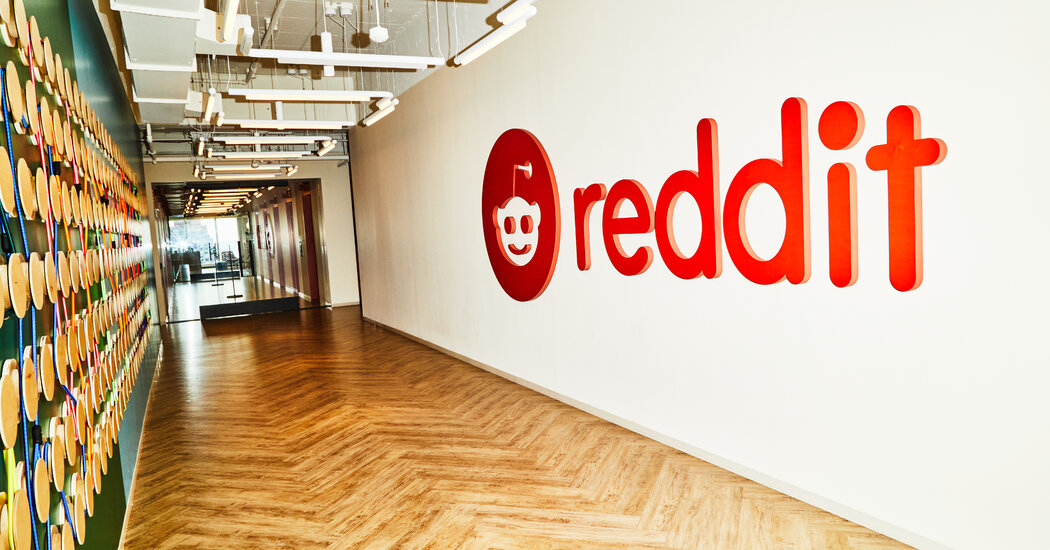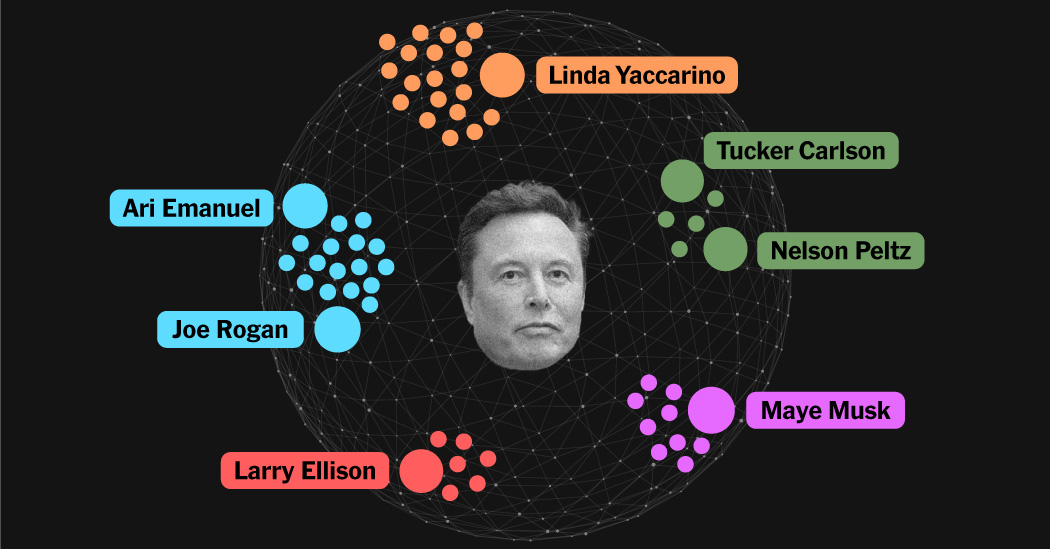Reddit on Wednesday priced its shares at $34 for its initial public offering, two people with knowledge of the matter said. The pricing was at the high end of expectations, in a sign of investor demand for growing tech companies.
The San Francisco-based social media company had estimated that its shares would be priced at $31 to $34. The $34 price put Reddit’s value at $6.4 billion, below the $10 billion valuation it fetched in a private fund-raising round in 2021. The company raised $748 million in the offering, said the people, who spoke on the condition of anonymity.
Its shares will begin trading on Thursday on the New York Stock Exchange under the ticker symbol RDDT.
The pricing was a favorable signal for start-ups and venture capitalists, who have been closely watching Reddit’s offering as a test for private tech companies angling to brave the public markets. Activity has been slow, with just over 100 companies going public in the United States last year, roughly a quarter of the number that went public in 2021, according to data compiled by Renaissance Capital, which manages exchange-traded funds that focus on I.P.O.s.
Shares of one of last year’s hottest tech company debuts — Instacart, the grocery delivery company — are up roughly 58 percent this year. Shares of Arm, a chip designer that also went public last year, are up about 90 percent in the same period.
The offering is a boon to Reddit’s largest shareholders. They include a co-founder, Steve Huffman, who holds a 33 percent stake; Advance Magazine Publishers, which is affiliated with the parent company of Condé Nast; and a unit of Tencent, the Chinese internet giant, called Tencent Cloud Europe. Alexis Ohanian, the other co-founder, was not listed in Reddit’s filings as a principal shareholder.
Reddit’s path to the public markets has been long. Founded in 2005, the company was an early form of a social network, growing up when Facebook was still nascent and MySpace was in its heyday.
Reddit relied on old-school-style message boards, which were largely text-based, divided by topics and browsed by pseudonymous commenters. The company was sold to Condé Nast in 2006 for $10 million, then was spun out after years of stagnation under previous management.
For years, Reddit’s revenues were scant. It experimented with different forms of moneymaking, including a community-based gifting economy that some enjoyed but that did not yield robust results. After a series of community revolts and a revolving door of chief executives, by 2015 Reddit had more than 100 million users but only $12 million in annual revenue. That year, Mr. Huffman, who had left in 2006, returned to lead the company.
In the years since, Reddit has built its advertising business, which now accounts for the vast majority of the company’s income. Revenue was $804 million last year, up about 21 percent from a year earlier. Net loss was $90 million, compared with a $158 million loss the year before.
Reddit has also built out a data licensing business, selling information on its users’ discussions and trends across the site to hedge funds and Wall Street firms, which use the information to gain an edge in trading.
More recently, Reddit has tapped into its vast troves of conversation data to market itself as a repository for training large language models, which help artificially intelligent computers learn speech abilities that are more human. The company expects to make more than $200 million over the next three years in these kinds of deals it has struck with Google and others.
Perhaps Reddit’s biggest obstacle to a smooth I.P.O. has been its users. The thousands of forums, or “subreddits,” that make up the site are overseen largely by a volunteer force of moderators. Some have resisted the idea of Reddit’s being a public company, concerned that market forces and the quarterly demands of shareholders will corrode some of the features that made the site so attractive to them.
Mr. Huffman has said the anxiety over going public has been a part of a normal “maturation process.”
“We have the same love for Reddit — and the same fear of losing Reddit — that our community does,” he told The New York Times last year.
Reddit’s offering was led by Morgan Stanley and Goldman Sachs.







